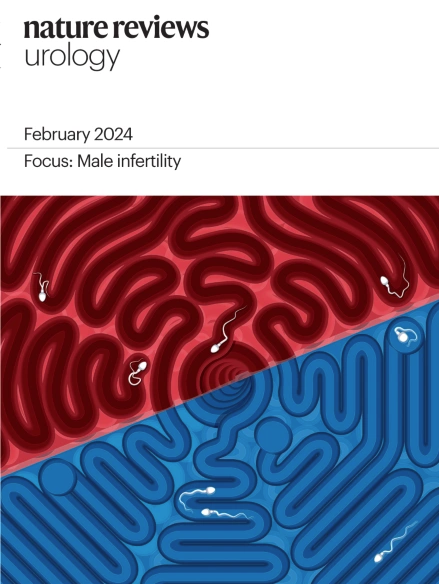衡量和改进泌尿外科手术从摇篮到坟墓的环境绩效
IF 12.1
1区 医学
Q1 UROLOGY & NEPHROLOGY
引用次数: 0
摘要
由于环境健康会影响人类健康,因此迫切需要进行社会转型,以减少人类对环境的影响。医疗保健造成了全球约 5% 的温室气体排放和其他巨大且持续的环境危害。因此,医疗保健专业人员和管理人员必须不断努力,改善医疗保健系统的环境绩效。生命周期评估(LCA)是一种能够估算产品和流程对环境影响的方法。它模拟从 "摇篮"(原材料提取)到 "坟墓"(使用寿命结束)的环境影响,并按惯例报告一系列不同的影响类别。如果使用得当,生命周期评估是一种有价值的工具。要使其效用最大化,需要合理的假设,同时仔细考虑系统边界和数据来源。执行良好的生命周期评估报告内容详尽、透明,可将评估结果调整或推广到不同的环境中。应注意在生命周期评估中模拟减缓解决方案。这一重要步骤可引导医疗保健系统采用新的创新解决方案,从而在国际气候协议方面取得进展。许多泌尿科疾病是常见病、多发病或慢性病,需要进行资源密集型管理,对环境造成巨大影响。泌尿科的生命周期评估主要关注温室气体排放,并能识别可改变的 "热点",包括用电、旅行、一次性用品、灌溉、再处理和废物焚烧。然而,已发表的泌尿科生命周期评估的方法和报告质量普遍有待改进和标准化。医疗保健评估和委托框架在重视临床结果和成本的同时也重视生命周期评估结果,这将加速可持续创新。还需要为已知的环境可持续解决方案制定快速实施战略。本文章由计算机程序翻译,如有差异,请以英文原文为准。


Measuring and improving the cradle-to-grave environmental performance of urological procedures
An urgent need for societal transformation exists to reduce the environmental impact of humanity, because environmental health affects human health. Health care causes ~5% of global greenhouse gas emissions and other substantial and ongoing environmental harms. Thus, health-care professionals and managers must lead ongoing efforts to improve the environmental performance of health systems. Life-cycle assessment (LCA) is a methodology that enables estimation of environmental impacts of products and processes. It models environmental effects from ‘cradle’ (raw material extraction) to ‘grave’ (end of useful life) and conventionally reports a range of different impact categories. LCA is a valuable tool when used appropriately. Maximizing its utility requires rational assumptions alongside careful consideration of system boundaries and data sources. Well-executed LCAs are detailed and transparently reported, enabling findings to be adapted or generalized to different settings. Attention should be given to modelling mitigation solutions in LCAs. This important step can guide health-care systems towards new and innovative solutions that embed progress towards international climate agreements. Many urological conditions are common, recurrent or chronic, requiring resource-intensive management with large associated environmental impacts. LCAs in urology have predominantly focussed on greenhouse gas emissions and have enabled identification of modifiable ‘hotspots’ including electricity use, travel, single-use items, irrigation, reprocessing and waste incineration. However, the methodological and reporting quality of published urology LCAs generally requires improvement and standardization. Health-care evaluation and commissioning frameworks that value LCA findings alongside clinical outcomes and cost could accelerate sustainable innovations. Rapid implementation strategies for known environmentally sustainable solutions are also needed. This Perspectives provides an overview of life-cycle assessment and its use in urological academic literature to date. The authors explain how life-cycle assessment can be interpreted and used to help to reduce the environmental impact of urology.
求助全文
通过发布文献求助,成功后即可免费获取论文全文。
去求助
来源期刊

Nature Reviews Urology
医学-泌尿学与肾脏学
CiteScore
12.50
自引率
2.60%
发文量
123
审稿时长
6-12 weeks
期刊介绍:
Nature Reviews Urology is part of the Nature Reviews portfolio of journals.Nature Reviews' basic, translational and clinical content is written by internationally renowned basic and clinical academics and researchers. This journal targeted readers in the biological and medical sciences, from the postgraduate level upwards, aiming to be accessible to professionals in any biological or medical discipline.
The journal features authoritative In-depth Reviews providing up-to-date information on topics within a field's history and development. Perspectives, News & Views articles, and the Research Highlights section offer topical discussions and opinions, filtering primary research from various medical journals.
Covering a wide range of subjects, including andrology, urologic oncology, and imaging, Nature Reviews provides valuable insights for practitioners, researchers, and academics within urology and related fields.
 求助内容:
求助内容: 应助结果提醒方式:
应助结果提醒方式:


